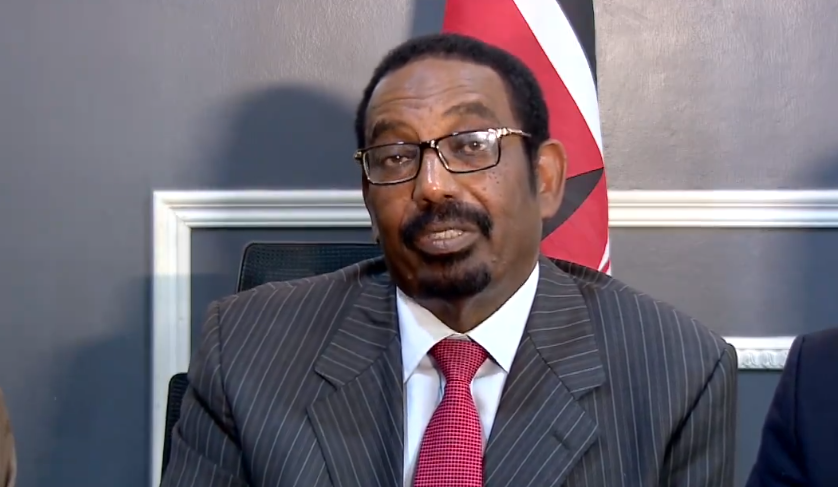Next CJ must have forward-thinking business philosophy

A country’s choice of Chief Justice goes beyond picking a manager to run its judicial bureaucracy.
It has far-reaching ramifications on the country’s ease of doing business; and that is why the Judicial Service Commission ought to play its cards right in picking David Maraga successor.
True, political considerations are critical in deciding who ultimately ascends to that office, more so now that the Executive is keen to have someone who is not perceived as antagonistic towards the other two arms of government.
Similarly, age and gender will be key considerations given those with eyes on that seat in future would be averse to a young candidate, who is likely to occupy that position for many years.
Still and all, it is also important to consider the business philosophy of who becomes the next CJ.
A casual look at any business contract will reveal most reputable institutions, businesses and organisations have a clause indicating in the event of a dispute, it will be resolved in New York or, closer home, Mauritius.
This is because, the jurisdictions have positioned themselves as places where judges can be relied on to render rulings that are fair, just and timely, for, justice delayed is justice denied.
Although Nairobi has been positioning itself as the business hub and gateway to East and Central Africa for global companies seeking to make an entry into the regional market, it has not matched this narrative with a commitment to improve its judicial systems to provide for speedy and just resolution of business disputes and enforcement of contracts.
Going forward, this will become an important question for Kenya to consider now that courts are in the cusps of change and whoever takes over leadership will have a great impact on how Kenya is perceived as a place where business disputes can be heard and where corruption cases involving private sector players are determined fairly and expeditiously.
In recent weeks, there have been reports that a leading US tech giant opted to set up base in Ghana simply because public officials in Nairobi were demanding unrealistic bribes and none was willing to open doors for international investors before palms were greased.
This is a serious setback on ease of doing business. It means genuine investors, local or foreign, are routinely confronted by hurdles that are unseen in the public sphere but which have implications on their success in business.
Judges have a critical role in first, stopping this trend going forward, and secondly, punishing those who have been accused of frustrating investments by making unfair demands for personal gain at the public’s expense.
It is telling, for instance, that whereas in London business managers behind the ‘Chickengate scandal’ were sentenced and their company fined, their Kenyan counterparts are still free.
Even after they had completed their seven-year jail terms, their Kenyan counterparts are still waiting for their turn in the dock. What message does this send to investors?
First, that the Judiciary is not ready to facilitate business. That means any other neighbouring country that is willing, ready and has the political will to fill this yawning gap will automatically have a competitive edge against Nairobi.
In a world where competition for resources is cut-throat and where value for investors counts as much as returns on investments, Kenya will perform poorly unless JSC instals a CJ who thinks business even as he ensures the wheels of justice continue to grind.
Second, investors are more likely to suffer if found guilty of financial crimes in own countries, while their accomplices in Kenya will be laughing all the way to holiday destinations.
That not only skews the relationship between the two but also signals that in Kenya there are no consequences for such crimes, hence little incentive for people to do business according to internationally agreed norms and best practices.
This in large part explains such aberrations as the Kemsa scandal through which dubious companies skimmed hundreds of millions of shillings meant for public good.
Because there are no consequences, defendants are emboldened to brazenly claim that their ill-gotten wealth was “an answered prayer”.
With the impending change in its leadership, Judiciary ought to use this opportunity to re-evaluate its competitiveness, not just in handling old cases, which appears to be its default position, but in projecting itself as an indispensable player in the regional and global economy.
Between 2015 and 2020, private equity deals worth Sh305 billion were signed in East Africa, with Kenya getting more than half the value. All the deals involve officers of the court — as lawyers, transaction advisers or conveyance agents.
Each deal had arbitration and legal redress clauses. How many of the listed Nairobi’s are courts of choice for determination of disputes? That is food for thought for the Judiciary and the next CJ. — The writer is a partner and head of content at House of Romford — [email protected]









